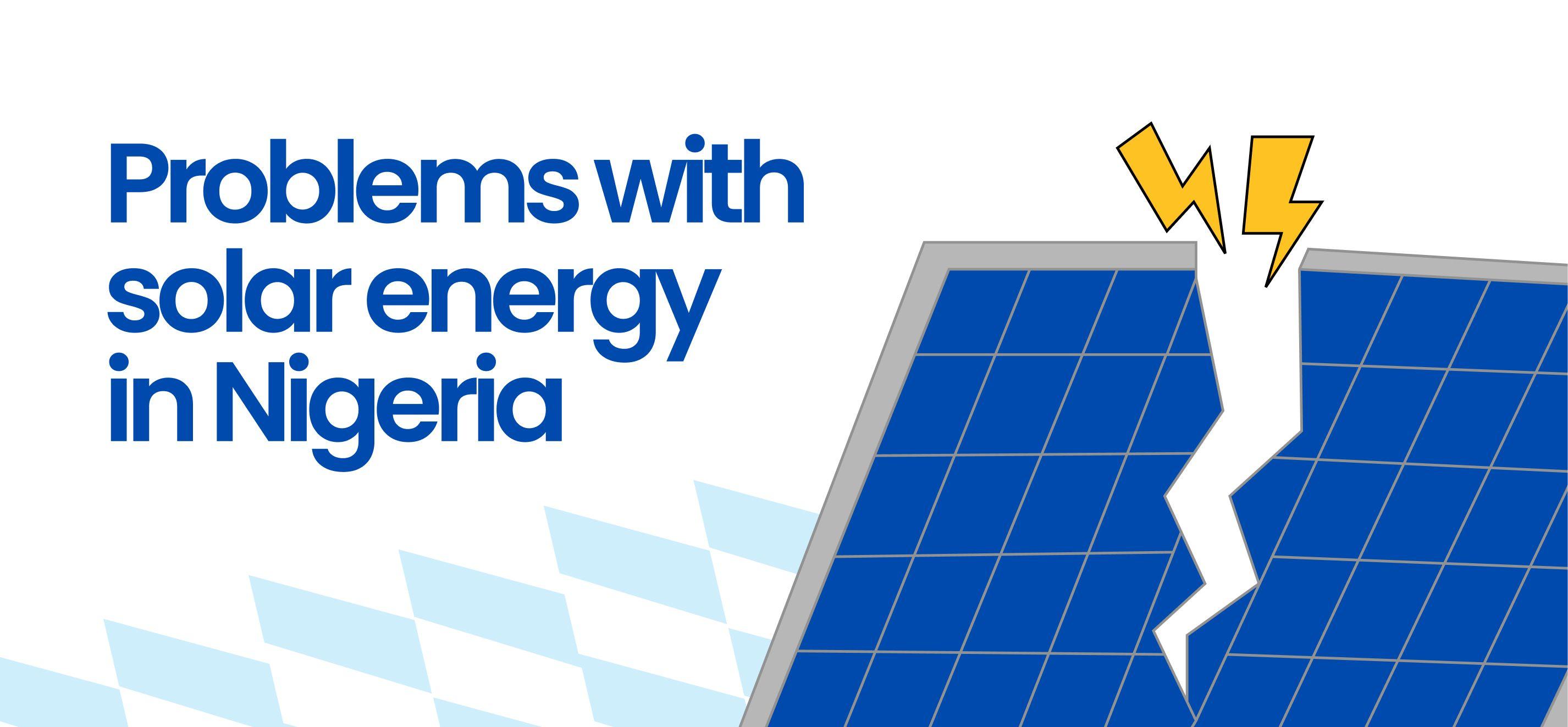Problems with solar energy in Nigeria
Despite abundant sunlight, Nigeria faces several hurdles in adopting solar energy. This article explores the key challenges limiting its widespread use.
October 29, 2025 3 minutes

Blessed with abundant sunlight, Nigeria holds significant potential for harnessing solar energy. However, a series of challenges marred the journey towards widespread solar adoption. In this article, we delve into the intricacies of the problems impeding the effective utilisation of solar power in Nigeria.
1. Intermittent Power Generation
The intermittency of sunlight hinders Nigeria's solar energy potential. Seasonal changes and occasional cloud cover impact the reliability of solar power generation. This intermittency poses a significant challenge to maintaining a consistent and reliable energy supply. While solar panels are designed to capture sunlight, the variability in weather conditions limits their continuous output.
2. Initial Cost and Affordability
One of the primary barriers to solar adoption in Nigeria is the high initial cost associated with installing solar panels and related equipment. Many individuals and businesses find investing in solar energy systems financially challenging despite the long-term cost savings. Affordability remains a significant concern, preventing a broader segment of the population from embracing solar power.
3. Limited Access to Financing
The lack of accessible financing options further exacerbates the challenge of solar adoption in Nigeria. Individuals and businesses face difficulties securing the necessary funds to invest in solar energy solutions. This limited access to financing impedes the growth of the solar industry, particularly for those who are economically disadvantaged.
4. Lack of Public Awareness
A crucial aspect hindering the widespread adoption of solar energy in Nigeria is the lack of public awareness. Many people are unfamiliar with the benefits and practicality of solar power. Public awareness campaigns are essential to educate the population about the advantages of solar energy, dispelling myths and fostering a better understanding of its potential.
5. Poor Maintenance Culture
Inadequate maintenance is a persistent issue affecting solar installations in Nigeria. The efficient operation of solar panels relies on regular upkeep, including cleaning and monitoring. A lack of maintenance culture can lead to decreased efficiency, system failures, and shortened lifespan of solar systems.
6. Insufficient Infrastructure
Nigeria faces challenges related to its energy infrastructure, including an unreliable electricity grid and limited energy storage facilities. These infrastructure limitations hinder the effective integration of solar power into the existing energy system, creating roadblocks for a seamless transition to renewable energy.
7. Policy and Regulatory Challenges
The inconsistent policies and regulatory frameworks for renewable energy in Nigeria create uncertainties for investors. Clear and supportive policies are necessary to provide a stable environment encouraging investments in solar energy projects. Regulatory challenges, including bureaucratic hurdles, can impede the progress of solar initiatives.
Illustration: A comparison between countries with supportive renewable energy policies and those with regulatory uncertainties, showcasing the impact on solar investment.
8. Technological Barriers
Limited access to advanced solar technologies and a shortage of skilled personnel contribute to technological barriers. Overcoming these challenges requires investment in training programs, research, and development to make advanced technologies more accessible. Bridging the technological gap is crucial for effectively deploying solar energy solutions.
Conclusion
While Nigeria holds immense potential for solar energy, the journey towards widespread adoption is fraught with challenges. Addressing these issues requires a multifaceted approach involving government initiatives, private sector involvement, and public engagement. Clear policies, increased public awareness, accessible financing, and technological advancements are essential components of a strategy to unlock the full potential of solar energy in Nigeria. By navigating these challenges, Nigeria can pave the way for a sustainable, energy-secure future.


Leave a Reply
Your email address will not be published.